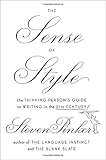I'd advice you to read a good style manual to understand more about writing and how to use words. One doesn't have to forcibly introduce words that are too complicated. There are good organic ways to write sentences that employ seemingly complex words in a natural way so that readers can understand quite well. The goal should be to elevate the users to get better at reading in addition to conveying your material, IMO.
A good book to read would be Steven Pinker's Sense of Style - https://www.amazon.com/Sense-Style-Thinking-Persons-Writing/....
One doesn't have to degrade their sentences just because we live in the age of attention span deterioration and social media. All of these minor tweaks can help people improve their attention spans by releasing micro dopamine orgasms.
Please never do this.
Commas and full stops have meaning. You’re modifying the original quote without telling the reader that you have done so. How this became the accepted practice in so many style guides and grammar checkers I will never understand. I shall defer to Geoffrey Pullum’s Punctuation and human freedom [0], whose title is entirely appropriate, for justification. Steven Pinker’s The Sense of Style [1] can provide the unconvinced further justification.
[0] http://www.lel.ed.ac.uk/~gpullum/punctfree.pdf [1] https://www.amazon.com/Sense-Style-Thinking-Persons-Writing/...
It is full of practical advice. I've read a lot of amateur (students/hobbyists) writing, so I can say his advice addresses a lot of common mistakes.
[] https://www.amazon.com/Sense-Style-Thinking-Persons-Writing/...
The Elements of Style was fine for me as a first peek into the subject in junior high; it's just as a kind of bible that it's overrated.
My eighth grade English class was innovative in that it used a textbook based on phrase-structure transformational grammar to teach me a lot of my English grammar. I would be glad to see books like that (modernized based on further linguistic research since the 1960s when the book was published) used in classrooms today. The "traditional" grammar poorly taught in the United States is based on an Indo-European grammatical tradition that is not completely lousy for teaching native speakers of Latin how to read and write Greek, but it has never been well suited for teaching analysis of English to native speakers or foreign-language learners of English. English has many grammatical features that are poorly described by the grammatical traditional of school lessons in English-speaking countries.
For further reading on this point, see Steven Pinker's excellent new book The Sense of Style: The Thinking Person's Guide to Writing in the 21st Century.[1] For a better than average treatment of this point on Wikipedia, see the article "English language,"[2] which was updated to "good article" status during the most recent Wikipedia Core Contest, and is actually pretty decent for a Wikipedia article, with lots of references to good-quality reference books about the English language.
[1] http://www.amazon.com/The-Sense-Style-Thinking-Persons/dp/06...
http://www.amazon.com/The-Sense-Style-Thinking-Persons/dp/06...
Pinker uses software terms to describe good writing: convert a _web_ of ideas into a _tree_ of syntax into a _string_ of words.
http://www.amazon.com/The-Sense-Style-Thinking-Person%C2%92s...

Try this book out, it's a fun read on how minor changes in words can make big differences in readability: https://www.amazon.com/Sense-Style-Thinking-Persons-Writing-...